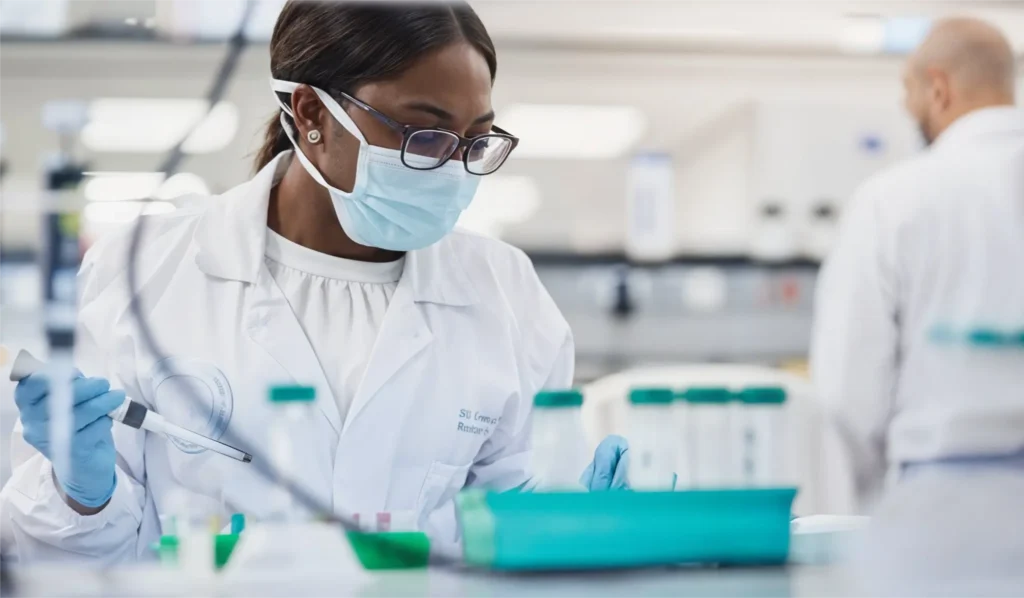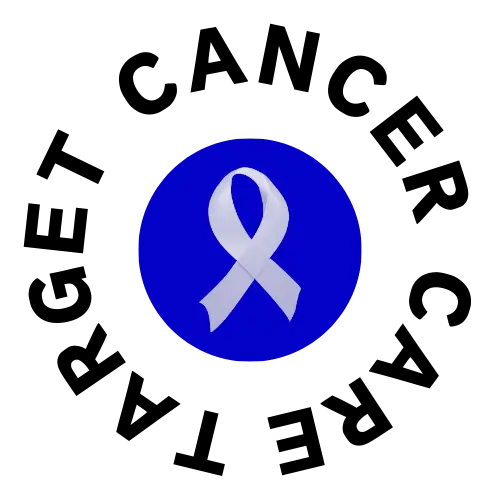Breast cancer clinical trials are essential in advancing cancer treatment, as they allow doctors to test new therapies and treatments. These trials help researchers learn more about how to treat breast cancer more effectively. For patients diagnosed with advanced stages, such as stage 4 breast cancer, participating in clinical trials can offer access to cutting-edge treatments that may not be available otherwise. Clinical trials for breast cancer stage 4 are particularly crucial, as this is the most advanced stage of the disease, and new therapies may provide better survival rates or improve quality of life.
Understanding breast cancer clinical trials is important for anyone considering new treatment options. By participating in these trials, patients contribute to the ongoing fight against breast cancer while also potentially benefiting from new and improved therapies. This blog will help guide you through the process of clinical trials, their benefits, and what to expect if you decide to participate in breast cancer clinical trials.
What Are Clinical Trials?
Clinical trials are research studies that test new ways to treat diseases, including breast cancer. In the case of breast cancer clinical trials, researchers examine new drugs, treatments, or therapies that may be more effective or have fewer side effects than existing treatments. These trials help to test the safety, effectiveness, and side effects of new treatments. Patients who participate in these trials are often among the first to try new treatments. Clinical trials for breast cancer are especially important because they provide a platform for innovation and improvements in cancer care.
When it comes to breast cancer clinical trials, the focus is on finding new, better ways to fight the disease. It’s important to note that clinical trials are carefully regulated to ensure safety and that participants are closely monitored. By participating, patients help to shape the future of cancer treatments, offering hope to future generations.
How Are Clinical Trials Approved?
Before a clinical trial for breast cancer begins, it must be approved by regulatory authorities such as the FDA (Food and Drug Administration) or the ethics committees of medical institutions. This process ensures that the trial is designed with patient safety in mind. When it comes to current breast cancer clinical trials, researchers must submit detailed plans, which outline the trial’s goals, methodology, and possible risks. These plans are reviewed to ensure they are ethical and have a strong scientific basis.
Approval also involves reviewing the qualifications of the researchers conducting the trial and the conditions under which the trial will be run. For breast cancer clinical trials, particularly those for stage 4 patients, it’s crucial that treatments being tested have a reasonable chance of improving outcomes. As the trial progresses, regulatory bodies continue to monitor the study for safety and effectiveness. This oversight ensures that breast cancer clinical trials are conducted in a controlled, ethical manner that prioritizes the well-being of participants.
Benefits and Risks of Participating in a Clinical Trial
Participating in breast cancer clinical trials offers several benefits, but it also comes with some risks.
Benefits
- Access to new treatments: Patients may benefit from the latest treatment options that are not yet available to the public.
- Close monitoring: Participants are often monitored more closely, which can lead to better care and management of the disease.
- Contribute to research: By participating, patients help advance the understanding of breast cancer and contribute to improving future treatments.
Risks
- Side effects: New treatments may come with unexpected side effects that have not been fully studied.
- Uncertainty: There’s no guarantee that the treatment will work or be more effective than standard treatments.
- Time and commitment: Clinical trials require frequent visits to the hospital and can take up a significant amount of time.
Overall, breast cancer clinical trials provide patients with an opportunity to benefit from new therapies, but it’s important to weigh the risks carefully before making a decision.

Phases of Clinical Trials
Breast cancer clinical trials are conducted in different phases to test the effectiveness and safety of new treatments.
- Phase 1: Tests the safety of the treatment on a small group of patients to find the correct dosage.
- Phase 2: Focuses on how well the treatment works in a larger group of patients, with an emphasis on effectiveness.
- Phase 3: Involves a larger group of patients to compare the new treatment with the standard treatment.
- Phase 4: This phase occurs after the treatment is approved and looks at its long-term effects.
Clinical trials for breast cancer stage 4 may begin in any phase, depending on the new treatment being tested. Each phase is crucial for determining whether the treatment is safe and effective before it is made widely available.
Who Can Consider a Clinical Trial?
Not everyone with breast cancer is eligible to participate in clinical trials. The criteria for breast cancer clinical trials vary depending on the trial’s focus. Factors like age, gender, health status, and the stage of breast cancer play a role in eligibility. Patients with breast cancer at different stages, including stage 4, may find that clinical trials for breast cancer stage 4 are an option.
Those who are in good general health and meet specific requirements for the trial may be invited to participate. For example, treatment clinical trials for breast cancer may only be available to those whose cancer has not responded to standard treatments. It’s important to speak with your doctor to determine if a clinical trial is right for you, based on your specific condition and treatment history.
Types of Clinical Trials
There are various types of breast cancer clinical trials that focus on different aspects of treatment.
- Treatment clinical trials for breast cancer: These test new drugs, therapies, or treatment regimens to treat the disease.
- Prevention trials: These trials explore ways to prevent breast cancer in high-risk patients.
- Diagnostic trials: Focus on new ways to detect breast cancer early.
- Supportive care trials: Explore new treatments to improve the quality of life for patients undergoing cancer treatment.
Treatment clinical trials for breast cancer often focus on finding better treatments for patients who have not responded well to traditional therapies. These trials are an important part of the ongoing effort to improve breast cancer outcomes and provide more treatment options.
How Clinical Trials Are Conducted
Breast cancer clinical trials are carefully designed and conducted to ensure the safety and effectiveness of new treatments. Here’s how they generally work:
- Participant recruitment: Eligible patients are invited to join the trial.
- Informed consent: Participants must understand the trial’s risks and benefits before agreeing to join.
- Treatment and monitoring: Participants receive the experimental treatment and are monitored closely for side effects and progress.
- Data collection: Researchers collect data throughout the trial to evaluate the treatment’s effectiveness.
Current breast cancer clinical trials often involve a combination of new and existing treatments to offer the best possible outcomes for patients. Clinical trials for breast cancer stage 4 may focus on treatments that target metastasis or improve overall survival.
How Clinical Trial Participants’ Safety Is Protected
Participants’ safety is the top priority in breast cancer clinical trials.
- Informed consent: Before enrolling, participants are provided with detailed information about the trial, its risks, and its procedures.
- Monitoring: Regular checkups and tests ensure that any side effects are promptly identified.
- Independent oversight: An independent ethics committee oversees the trial to ensure safety standards are met.
- Patient support: Participants can contact medical professionals for any concerns or issues.
Treatment clinical trials for breast cancer follow strict guidelines to minimize risks and ensure participants’ well-being.
Common Misconceptions About Clinical Trials
Many people have misconceptions about clinical trials for breast cancer. Let’s clear up some common myths:
- “Clinical trials are only for terminal patients”: This is not true. Clinical trials are open to patients at various stages, including early stages.
- “Clinical trials are unsafe”: All clinical trials must adhere to strict safety protocols to protect participants.
- “Clinical trials only offer placebo treatments”: While some trials may involve a placebo, many involve new treatments that have shown promise in earlier studies.
- “I have to pay for everything”: Often, the costs of participating in a clinical trial are covered by the sponsoring organization.
Types of Breast Cancer Treatment
Breast cancer treatment varies based on the type and stage of cancer. The main treatment options include:
- Surgery: This involves removing the tumor through a lumpectomy (breast-conserving surgery) or mastectomy (complete breast removal).
- Radiation Therapy: High-energy rays target cancer cells, often used after surgery to prevent recurrence.
- Chemotherapy: Powerful drugs kill cancer cells or stop their growth, typically used for aggressive or advanced cases.
- Hormone Therapy: Blocks hormones like estrogen or progesterone that fuel certain breast cancers.
- Targeted Therapy: Uses drugs to attack specific cancer cell proteins, causing fewer side effects than chemotherapy.
- Immunotherapy: Boosts the immune system to fight cancer cells effectively.
Patients exploring current breast cancer clinical trials may access innovative treatments, improving outcomes and advancing cancer research.
Covering the Costs of Clinical Trials
When participating in breast cancer clinical trials, patients may wonder about the costs. Here’s what you need to know:
- Treatment costs: Some trials cover the cost of treatments, while others may require participants to pay.
- Insurance: Most health insurance plans cover the costs of standard treatments, but clinical trial-specific expenses may not be covered.
- Out-of-pocket costs: Travel expenses, accommodation, and additional medical tests may be out-of-pocket costs for participants.
- Financial assistance: Some trials offer financial help or compensation for participants’ time and travel.
Patients should discuss costs and coverage with their doctor before committing to a trial.
8 Breast Cancer Lifestyle Changes
Here are 8 breast cancer lifestyle changes to help lower your risk:
- Exercise regularly.
- Maintain a healthy weight.
- Limit alcohol consumption.
- Avoid tobacco.
- Breastfeed if possible.
- Limit hormone replacement therapy.
- Be mindful of chemicals in the environment.
- Eat a balanced diet rich in fruits and vegetables.
Exercise
Exercise is a crucial part of breast cancer lifestyle changes. Regular physical activity helps maintain a healthy weight, boosts your immune system, and may reduce estrogen levels in the body, which is particularly beneficial for those at risk of estrogen-positive breast cancer. Aim for at least 150 minutes of moderate exercise or 75 minutes of vigorous activity each week. Activities like walking, running, swimming, and cycling are great options. Strength training can also be beneficial, as it helps build muscle and maintain bone density, reducing the risk of osteoporosis, which is a concern for cancer survivors.
Exercise also has emotional benefits, improving mood and reducing stress. Stress management is vital, as high levels of stress may affect overall health. By incorporating regular exercise into your routine, you not only decrease the risk of breast cancer but also support your body and mind in coping with the disease if you’re already diagnosed.
Weight and Diet
Maintaining a healthy weight is another essential breast cancer lifestyle change. Obesity, especially after menopause, can increase the risk of breast cancer due to the higher levels of estrogen in the body. A healthy diet rich in fruits, vegetables, and whole grains can help you manage your weight and decrease your risk. Breast cancer foods to avoid estrogen positive include those that may cause inflammation or increase estrogen production. Reducing your intake of processed foods, sugary snacks, and red meat can help control weight and support overall health.
Foods high in fiber, antioxidants, and healthy fats like those found in leafy greens, berries, nuts, and fatty fish can help protect your body against cancer. Additionally, avoid excessive amounts of alcohol, as it has been linked to an increased risk of breast cancer. Choosing a diet that supports weight control and minimizes cancer risk is crucial.

Alcohol and Tobacco
Both alcohol and tobacco are linked to an increased risk of breast cancer treatment. Reducing or eliminating alcohol consumption is an essential breast cancer lifestyle change. Studies show that women who drink alcohol regularly are more likely to develop breast cancer, as alcohol can increase estrogen levels, which can promote the growth of estrogen-positive breast cancer cells. It’s best to limit alcohol intake to no more than one drink per day, or eliminate it entirely if possible.
Smoking is another risk factor for breast cancer, especially for those who start smoking early in life or who have smoked for many years. Tobacco chemicals can damage the DNA in breast cells and make them more likely to develop cancer. Quitting smoking has immediate and long-term benefits, reducing your risk of breast cancer and improving your overall health.
Children
If you’re considering starting a family, breast cancer lifestyle changes can play a role in reducing your risk. Giving birth to children at a younger age and having multiple children can lower the risk of breast cancer, as pregnancy and breastfeeding reduce lifetime exposure to estrogen. Additionally, if you have a family history of breast cancer, understanding the role genetics play in your risk is essential.
While you cannot change genetic predispositions, managing other lifestyle factors—like diet, exercise, and alcohol consumption—can still make a difference in your breast cancer risk. It’s also important to stay aware of changes in your body and consult with your healthcare provider regularly.
Breastfeeding
Breastfeeding has been shown to reduce the risk of breast cancer. Women who breastfeed have a lower chance of developing breast cancer, especially if they breastfeed for longer periods. This is because breastfeeding reduces the number of menstrual cycles a woman experiences, lowering estrogen levels and giving the breast tissue time to recover from the changes associated with pregnancy.
For new mothers, it’s beneficial to try to breastfeed exclusively for the first six months, and for longer if possible. Breast cancer lifestyle changes include not only how you eat or exercise but also decisions like breastfeeding that can have a lasting impact on your health.
Use of Birth Control
The use of birth control pills has been associated with a slight increase in the risk of breast cancer, especially in younger women. The hormones in oral contraceptives may influence the growth of hormone-sensitive breast cells. If you’re concerned about your breast cancer risk, consider discussing alternative birth control methods with your doctor. Non-hormonal options, like copper IUDs, may be a safer choice for those with a family history of breast cancer.
Understanding the breast cancer lifestyle changes that impact your hormonal health is an important part of breast cancer prevention.
Hormone Replacement Therapy (HRT) After Menopause
Hormone replacement therapy (HRT) is commonly used to manage menopause symptoms, but long-term use of HRT has been linked to an increased risk of breast cancer. How to avoid breast cancer symptoms includes considering the risks of HRT and discussing alternatives with your healthcare provider. For some women, lifestyle changes such as regular exercise, a balanced diet, and managing stress may help reduce menopause symptoms without relying on hormone therapy.
If HRT is necessary, it’s important to use it for the shortest period possible and to consider the potential risks and benefits carefully. Limiting exposure to unnecessary hormones is a key aspect of breast cancer lifestyle changes.
Chemicals in the Environment
Environmental chemicals, such as pesticides and certain plastics, have been linked to an increased risk of breast cancer. These chemicals can act as endocrine disruptors, interfering with hormone regulation and potentially increasing the risk of hormone-related cancers. Limiting exposure to these chemicals by choosing organic foods, using natural cleaning products, and avoiding plastic containers and bottles can help reduce your risk.
Breast cancer lifestyle changes also include staying informed about environmental factors and advocating for policies that minimize exposure to harmful chemicals. By being mindful of the environment around you, you can protect your health and reduce the likelihood of developing breast cancer.
Conclusion
Breast cancer clinical trials play a crucial role in advancing the fight against breast cancer. By participating, patients contribute to the development of new treatments and improve their chances of finding a therapy that works for them. Clinical trials for breast cancer stage 4, in particular, offer hope for those facing advanced cancer, providing access to potentially life-saving treatments. Understanding how clinical trials work, their benefits, risks, and how to get involved is essential for anyone considering this option. If you’re eligible, participating in a breast cancer clinical trial can make a difference—not just for you, but for the future of breast cancer treatment.
Read also Radiotherapy for Breast Cancer.




